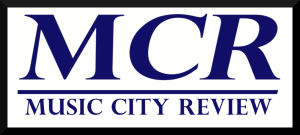The MCR Interview:
Maestro Guerrero Discusses the New Season (and much else…)
This summer Benjamin Gates, writer for the Music City Review, had the opportunity to interview NSO Music Director Giancarlo Guerrero about the state of the orchestra and music in the Music City. Below is a transcription of that conversation.
Music City Review (MCR): It’s been an exciting season for the Nashville Symphony. Between great concerts and a lot of firsts, were there any moments this season that stand out in particular in your memory?
Giancarlo Guerrero (GC): “I have to say that every concert has been quite eventful just for the fact of being able to perform again, and slowly but surely getting back into the swing of things and reconnecting with our audiences.”
MCR: I think for us symphony-goers some of the most important moments, things that stick out from this season, have been being back in the Laura Turner Hall, of course, and then within the last few months, the lifting of masking and vaccination requirements. What’s it like on your end navigating these sorts of issues?
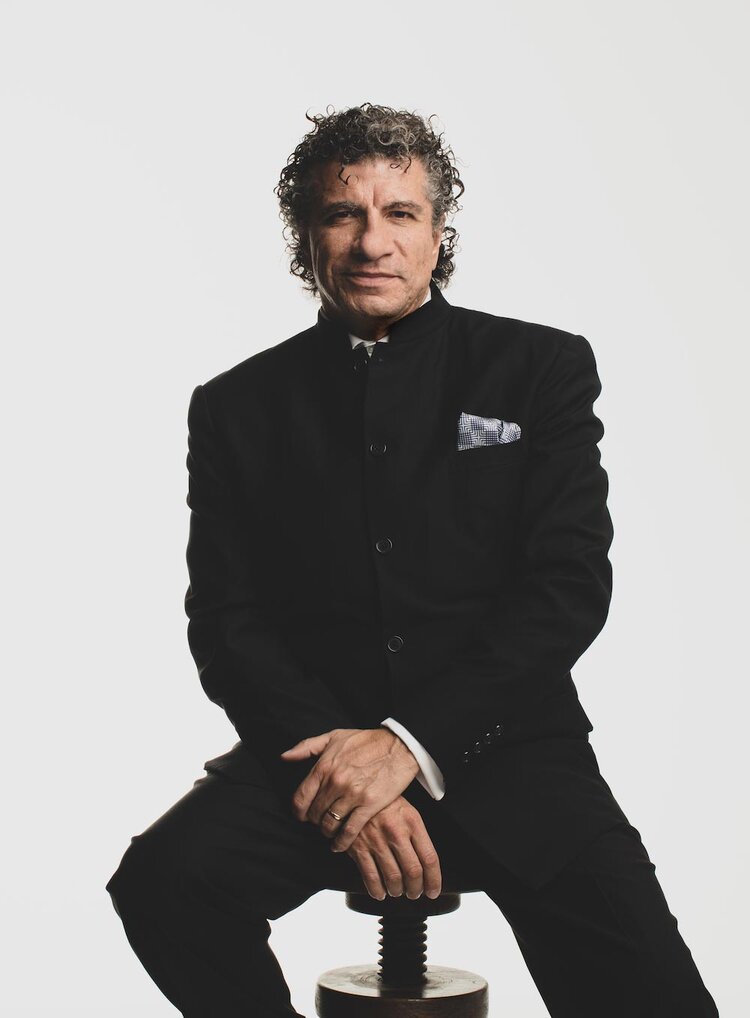
GC: Early on, of course, it was like re-learning how to ride a bike. All through the pandemic, I was fortunate to be able to continue working in Europe, even though things were shut down in Nashville and we were all furloughed and you know the story. At least in Europe we were able to continue, but this was by no means perfect. I mean this was a socially-distanced orchestra, which we were willing to put up with, but it goes completely against everything that we as musicians are all about: being together and sharing. But we were willing to put up with it. Even nowadays you saw what happened a little while back, we had to cancel our performances of The Firebird, at least the participation, because of COVID.
We’re not quite out of it, so in many ways it can still be quite frustrating we’re still having to deal with a lot of the health protocols, even though it seems like we’re kind of moving away from that. But we’re not quite out of it and that can make things even harder because we can see the light at the end of the tunnel. And yet we keep getting pulled back into reality. But I do remain very hopeful for the brighter future and that hopefully by the beginning of next season we’re going to be in a different place not only in terms of the pandemic, but also mentally, that we’re just going to have to learn how to live with this. Our devoted audience members attending the Symphony are going to have to learn how to [adapt], and hopefully this won’t become an impediment for them to come back into the hall.
MCR: It’s hard to say of course this far out, but do you think that means next season if there are more spikes of COVID cases, would that manifest as a return of masking and vaccination requirements?
GC: You know, I can tell you right now, we will have spikes. There’s no way around it. We know that. We’ve seen this playbook. I mean, depending on the weather around the world, spikes go up and spikes go down. As I said before, it’s just going to be a matter of how we just learn to live with this. I mean, we have the vaccinations. We have the boosters. We have everything that I think we can do at this point. And after that, it’s just taking precautions. Those people that feel a little bit more at risk perhaps, absolutely if they want to keep wearing masks. But there’s another big part of the population that’s ready to move on, and I think, ready to take that risk.
We have to remember that in many ways before the pandemic we did not live in a risk-free world. There was always a chance. And COVID by far is not the only dangerous virus out there. Even a bad case of the flu can be quite fatal, so to me, as I said, it’s a matter of how we think about this. And I’m hoping for the sake of our artform that people in many ways are going to learn how to live with this in a way that allows them to continue their normal lives, which I hope attending our performances will be a part of. Like I said, there’s a part of me that thinks by the beginning of next season, we’ll all be in a different place where hopefully COVID won’t just be something that is a part of the reality and we’re just going to have to accept it as what it is. In many ways, vaccines may get better or even the virus may get weaker, hopefully we’ll start talking less and less about it. So, that’s just my hope.
MCR: My hope too, and speaking of talking less about it, let’s move on to the music. I’m sure you’re tired of talking about that!
GC: No, that’s quite alright. I mean, it’s the reality of it all. As a music director of an organization not only here but in Europe, as I said, it is a reality, but it’s funny that in Europe it’s already in the back mirrors depending on where you go. It’s really how localized it is. And also how different the regulations are in different countries and in different cities. So, like I said before, it’s like re-learning how to ride a bike. Everywhere you go, it’s going to be different rules, you just have to learn to adjust to it.
MCR: It goes without saying: A lot of work must go into putting together a successful program, let alone an entire season of programs. What kinds of considerations do you make when planning out a season’s worth of concerts, either artistic or practical or both, and how far in advance is a concert’s program typically in place?

GC: So yes and yes and yes and yes. Everything goes into consideration, and when you start you basically start with a clean slate. Post COVID, in many ways, it’s really like starting from a clean slate because we’ve had a couple of years of basically no activity so the idea that ‘Oh! We just played that piece last year, we played that piece three years ago!’ That’s really no longer the case. We’re starting from scratch again. You do have to understand that in normal cases we tend to program stuff two, three years in advance. Not only to plan repertoire precisely, but also for soloists and guest conductors to get it into their calendars. Especially the level of artists we are seeking to come to Nashville, we have to get in their calendars two or three years in advance if we want to get a chance, because we’re competing with the New York Philharmonic, the Boston Symphony, and the Berlin Philharmonic.
It’s that level of artist that we have. But remember that even a year ago we did not know where we were going to be with COVID, so even if we were planning [something], we had almost like almost like alternate realities just in case something else happened. But as things kept getting better, we realized we were going to be in a more normal state and that’s what we planned for, for next season and even the ending of this current season. So, as usual, it’s not only the amount of dates we have available, it’s funding, it’s budgeting, it’s technical, as you say.
One thing about COVID, as much as we don’t like to talk about it, it is currently affecting everything we decide. In a lot of cases, and Nashville Symphony is not an exception to that, we have lost quite a few players, that have gone to do other things, have moved on to other jobs. More, unfortunately, have left music altogether because they needed to find a way to support their family. So, that has created a situation where not all the positions are currently filled by permanent members. We are having to go through the process of auditions. So that obviously weighs on mind when programming repertoire, because I perhaps want to wait. On certain pieces I want to have my full-time people in place to do this, but at the same moment, we do have to move on. And when you see next season, for example, it’s very exciting because we have not only the normal great amount of American repertoire, which we will be recording, which we’re very proud of, but we have Mahler, Mozart, we have Beethoven, and just repertoire that really makes a great symphonic product to be sold, and that makes it quite exciting for us. But yeah, even as we are doing this, we do know that we may need to adjust if need be, but I am hoping that may not be the case.
MCR: You mentioned American music. The Nashville Symphony under your baton has become synonymous with commissioning, programming, and recording contemporary classical music, and above all contemporary American classical music. What has been the audience response from your perspective to so much new music?
GC: From the beginning, like anything, we have to make it a part of the orchestra’s DNA. The audience has come to understand that this is a big part not only of what the Nashville Symphony is all about, but also Nashville. The reason why I think it has been hugely successful and accepted in Nashville, the idea of American new music, is that fact that Nashville being Music City we have American music being performed all around town. When you think about all of the genres that are being recorded, promoted, and performed around the town are American: bluegrass, rock ‘n’ roll, jazz, country, whatever that may be. I mean, country is no longer country. Now we have a kind of combination of pop music and everything else. So, in many ways what we’re doing with the Symphony kind of connects with what’s happening in the reality of Nashville, and I think people see that.

The other reality is something that I have conveyed to the audience from the very beginning of the project, that this music is being commissioned by the Nashville Symphony and is being written specifically for Nashville. And it’s being written with the support of our citizens in the community, not only through their donations as supporters and philanthropists, but anybody who buys a ticket basically is giving their okay that this is what they want to see from their Symphony. The combination of the great old warhorses with what’s being written today. Also, the idea of the project of not just playing music and giving it to you like it’s some kind of bad medicine. The idea of bringing these composers to the city and giving them the opportunity of a voice and speaking to our audience what the music is about. It’s exactly as if you were alive in the 1800s and you got a chance to go to a Beethoven world premiere and Beethoven is talking to you on a pre-concert lecture. It’s exactly the same thing. We just have to think in terms of history. And I think over the years the fact that these have been incredibly accepted as central not only in our recordings and commissions, and remember we’ve gotten a lot of Grammys out of this, the world has noticed. I think there’s a great sense of pride in the city and our concertgoers, a feeling of saying ‘I was there. I was a part of this. I promoted this. I supported this.’ And my spirit in these recordings, remember they’re all live, they feel that they owned it.
And yes. Nashville owns all of these commissions and the fact that all of these great, living American composers want to be a part of the Nashville Symphony speaks volumes about the reputation of the orchestra, and more importantly of our community and of our very sophisticated audience. So, it’s something that doesn’t happen overnight. We have had to work over time and I think at this stage in my tenure with the orchestra, the audience understands the importance of this. That yes, we love our old-time warhorses. I’ll be the first one in line for that! Beethoven, Mozart, Haydn, Brahms, Stravinsky. Absolutely! But those guys at some point, every single one, was new music. And somebody had to give them a chance. So now it is my generation’s time to give those voices today the opportunity to become the next Stravinsky, the next Brahms, the next Beethoven. So that is what is just so important, and I think audiences are understanding and getting the great kick of getting to know these people personally and hear them speak about their own music and understanding what it is they’re trying to achieve.
MCR: What does the term “Classical canon” mean to you in the 21st century?
GC: It’s meaningless. I mean, it changes. You know what, the classical canon in Nashville may be the different classical canon in Franklin, Tennessee. And it may be the classical canon in Vienna or in Berlin or in New York. Listen, I program for Middle Tennessee. I think of repertoire, and I think of musical seasons not only classical, but altogether, for Middle Tennessee. And as you well know over the last fifteen years, at least since I moved here, the changes have been unbelievable. This is not the same community it was three years ago or five years ago or ten years ago. So, the idea is that we have to keep programming music and repertoire and artists that are relevant to our community. Because remember what works in Chicago might not work in Nashville, and that’s perfectly fine. So, my idea is bringing repertoire that means something for people. Of course, there is repertoire like Beethoven, which is timeless. But then again, which symphony? And why? And what do you pair this with?
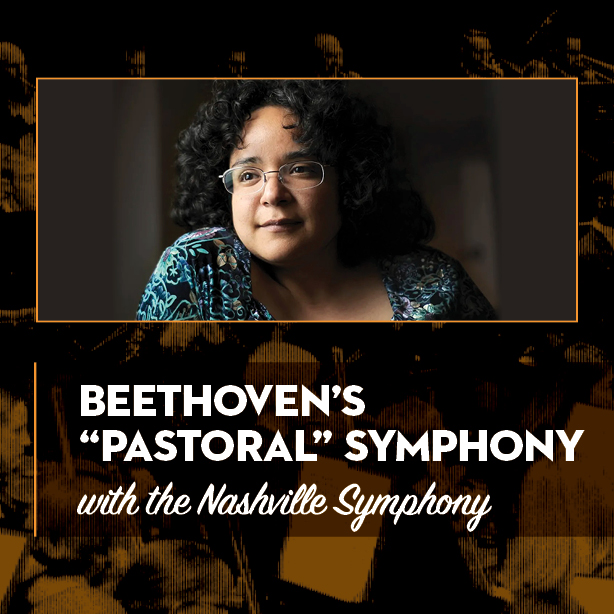
Like next season, I’m doing the Gabriela Lena Frank Conquest Requiem next to Beethoven’s Sixth Symphony. Well, there’s a programmatic connection there. The idea of this Conquest Requiem being written for a time of the conquest, which involves a lot of nature, and then Beethoven’s Sixth Symphony, which is aptly called the “Pastoral.” I see there’s a connection there. And in many ways by putting these two pieces together, I have a feeling, and I know for a fact that Beethoven’s Sixth is going to have a chance to sound fresh again next to a 21st century piece. And that’s what you need to do. Remember that attending a concert is not like staying at home listening to a CD. Attending a live performance is a different experience. And that’s what I want to provide audiences: go through a journey of hearing these pieces as a whole. And it’s going to be a bumpy journey like it always is. You don’t expect everything to be life changing. You want to go there and have the opportunity to discuss and see how this music may have moved you, or not.
MCR: Speaking of how much Nashville has changed in general since you took over as director of the NSO, could you describe how you’ve seen the Nashville Symphony change, but also in general the classical music community in and around Nashville?
GC: It’s gotten larger, which is great in many ways. I mean, many people have moved into Nashville that have brought not only music lovers, but people with different tastes as well. People that have normally attended performances or were subscribers in New York or Chicago or LA or anywhere else bring their own ideas, and they have become a regular part of, let’s say, our audience members. And they have been very vocal about what they want to hear and how excited they are that, for example, where they came from was perhaps a little bit too conservative for their taste. And it depends also on age range. I mean, that also has a lot to do with it. But remember that also here we have the Opera, we have the Ballet, we have Intersection, we have the Nashville Philharmonic, all of these. Because it is a town that is filled with musicians and in many cases really great musicians, so that not everybody belongs to the Nashville Symphony. But they’ve managed to create all these other side organizations that at the same time are generating more music lovers, which is so important for all of us.
So, I think Nashville is definitely living up to its nickname of “Music City.” And classical music, for me, it has been very exciting to see how it has continued to grow, and I hope that that is the case because when that happens it means there is demand. That there is a desire in the community to listen to this music. So, for me it has been inspiring to see how many of my colleagues are being successful putting programs together for smaller ensembles, which is fantastic. That’s something we don’t do, but I think it’s still necessary. And of course, I haven’t even included the Universities and the schools. I mean, what is happening, even in the middle schools around Middle Tennessee, the level of music being made in the bands and the orchestras is quite remarkable. All of that has the great ability to generate more and more music lovers and more interest in what it is that we do.
MCR: Looking ahead to next season, you mentioned you love every concert, but are there any pieces you’re especially looking forward to conducting next year?
GC: Oh, well there are pieces that I haven’t done in a long time. I’ll tell you one: the second concert for example is [Gustav Holst’s] The Planets. I haven’t done that piece in a long time. And it’s always a favorite, I know. Orchestras love playing it, and I know audiences adore it, so that one I’m looking forward to. The Mozart Requiem, which is a piece that, again, was already programmed during COVID time and because of it, we had to cancel it. So, it’s like reconnecting with an old friend. It’s a piece that, again, is very close to my heart, and I haven’t done it all that many times so every time I get to do it, it’s exciting. The Mahler Second to open the season, which is titled “The Resurrection.” You see the connection here. I mean, that one is a pretty easy one. Of all the projects, I do have to say, there is a lot of new music I’ve never done before. And that can be quite scary because as a conductor you kind of learn, the more you conduct. So, the first time you conduct Beethoven Five, you’re going to be stepping on a lot of land mines. Or any classical piece. And the more you do it, the more you figure it out. But because of the way we try to program the season with so much new stuff, and some of it already postponed from COVID time, I found myself with a lot of music I’ve never done before.

So, it means I’m going to have to be learning a lot of new music very fast. To begin with, the opening subscription program is three female composers, two of them who I know very well in the case of Joan Tower and Julia Wolf, and the world premiere of Her Story, which was a piece for the 19th amendment, the Women’s Suffrage. And Florence Price, who has had this incredible popularity, which has been long overdue, I will be doing her piano concerto, which, again, was something that was cancelled from COVID time. So, to do three completely new pieces in one program is quite daunting. I don’t think I can remember the last time when an entire program I was doing was of music that I’ve never done before even though I love it. Including one world premiere, which by the way, I still haven’t seen the score yet. And another one of those pieces later in the season is The Jonah People by Hannibal Lokumbe, which is again this great project that Hannibal wanted to do, and me and the Nashville Symphony decided, you know, we’re going to give you the voice for it. I still haven’t seen the score for it. So that’s going to be another long evening, a lot of music for me to learn. Fortunately, I have the composers around if I have any questions. They’re only one email or one Zoom call away.
MCR: One major change for the 2022/2023 season that concertgoers are already aware of is, of course, that Concertmaster Jun Iwasaki will be leaving for an opportunity at the Kansas City Symphony. I’m sure the two of you must have developed quite a solid working dynamic over the last eleven years. Are there any concerts or pieces that stand out to you from your time working together?
GC: Oh, absolutely. I would say pretty much every single one is unique in their own way. When you have performances, of course they all have their own memories to them. But you’re absolutely right, I mean, I was fortunate enough that I brought Jun to Nashville. I hired him when he was very, very young, by the way. This was basically his second position as concertmaster of a major orchestra. But we connected immediately, and he was an incredible right hand for me. Remember that he is one of the most important musicians just by hierarchy in an orchestra, by being basically my right hand, but at the same time he’s the leader of the string section, not only the violins, and that is by far the largest section of any orchestra—so the one that can have the most impact when you’re developing a sound and style in an orchestra. He was instrumental in developing that. Remember that when he came in, the hall was still relatively new. So, in many ways we were still learning how to play at Laura Turner Hall! And over the years that has been one of the most exciting things discovering all the many ways we could improve the way the Nashville Symphony presents itself while at
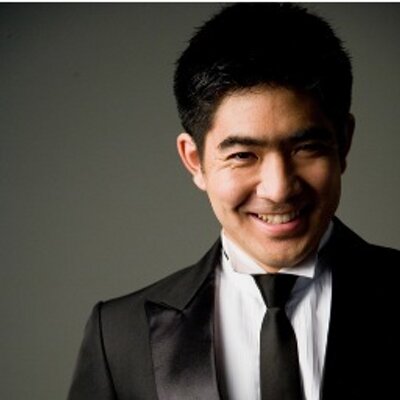
the same time participating in auditions and helping me select players. So, his opinion and his advice have been present in pretty much a lot of the most important artistic decisions that I have made. Plus, you know, he has played as soloist quite a few times with the orchestra, so in many ways I would say that he’s probably the best-known musician within the orchestra, the most recognizable face, and that’s just pretty much in every major symphony orchestra the concertmaster is the person that comes out, tunes the orchestra.
I’m not going to mince words here, losing him is quite a blow to the Symphony, but at the same time I am very happy for him as his friend and his colleague that he’s found this other opportunity for himself and for his family. I know that it was a very difficult decision, but just like it did eight or nine years ago, it opens up an opportunity for us to look for somebody as great and as exciting as Jun is, and I’m sure that with the many amazing players coming out of conservatories now, I’m sure that we will find the perfect person that will take us, again, to that next level and continue this amazing artistic growth of the Nashville Symphony just the way that Jun did. He will be greatly missed. I’ll tell you on a personal level, I will miss him very dearly, but at the same time I am excited for him and for his family, and I am also excited for the new possibilities this opens for the Nashville Symphony.”
MCR: I have one last question for you. Of course, the influx of people to the city has brought more change than just more traffic and new construction. As many are probably aware, changes to the local tree canopy have created an unusual and unfortunate situation: flocks of thousands and thousands of purple martins, which usually stop in and around Nashville on their way to South America, roosting all at once at the Schermerhorn and causing quite a lot of damage over the last few summers. What was it like dealing with the influx of birds (and tourists to see the martins!) from your perspective?
GC: (Laughs) Of course I have to tell you a lot of this was happening during the pandemic when the Hall was shut. And because of the fact there was nothing going on in the Hall, there wasn’t really the daily maintenance that you expect when we’re in normal times, daily cleaning you know. I mean the Hall was shut down. There was nothing going on. Our entire staff including our cleaning staff was laid out. So, I think that made the situation much worse than it could have been. And after the fact that we were coming back, it was almost like having to assess the real damage that was done over a couple of years of not really taking care of it. Because let’s face it. We were not paying attention to birds. We were all just trying to figure out how this COVID thing was going to end. And then by the end of this happening we came to realize, yeah, there were bigger damage than we expected. This doesn’t really fall into the artistic part of my job description, honestly, and in many ways, I feel like I was lucky enough I did not have to be a part of those discussions, because as I understand it from Alan Valentine and from our staff, it got very, very heated. I mean it got to a point that, as it happens with social media, there was a lot of misinformation and a lot of vitriol.
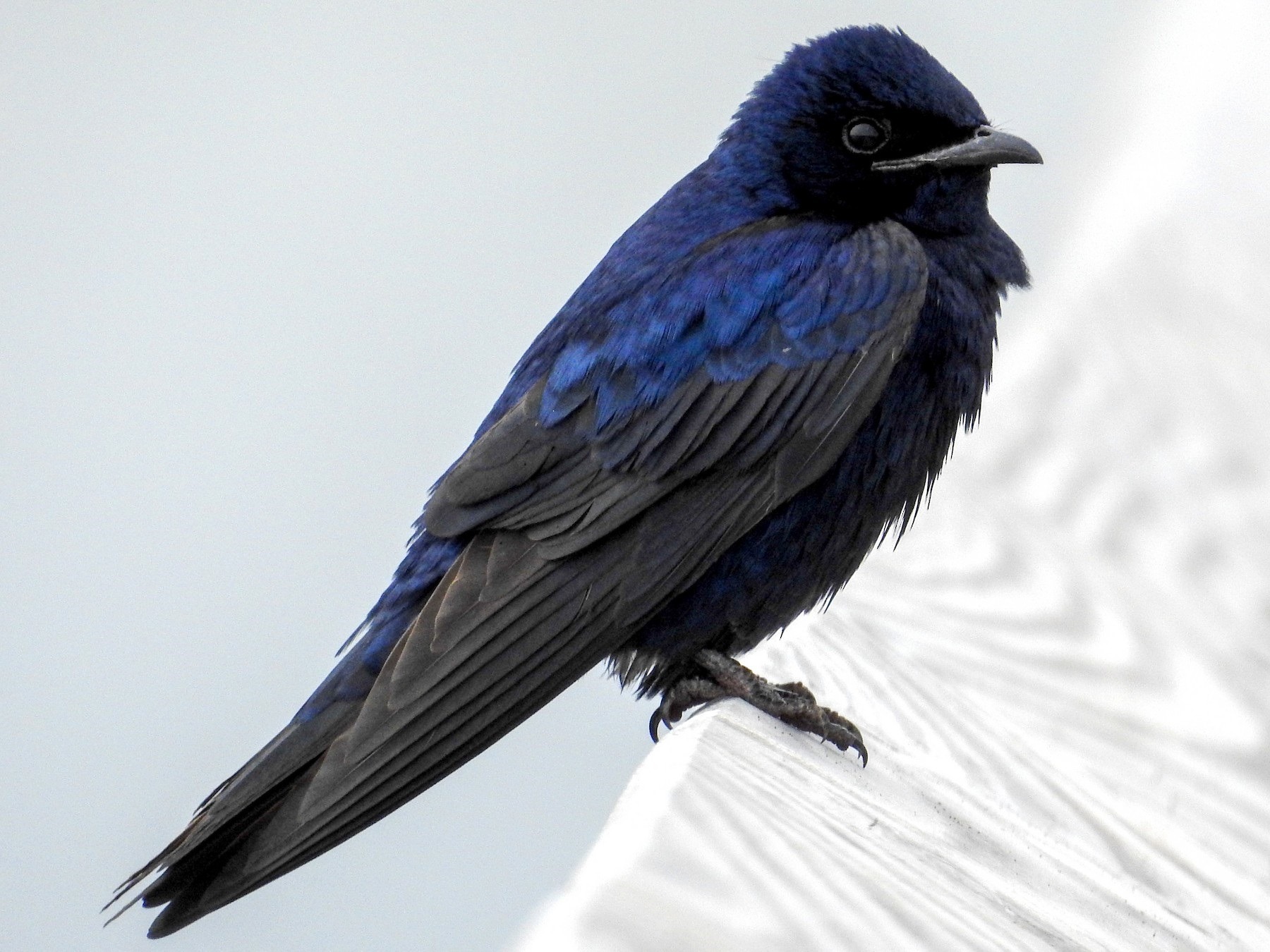
Like I said, in many ways I was lucky that I was not part of that, but one thing is for sure: nobody wants to see any of these birds damaged or hurt or what have you, and I’m sure that in the world we live in, in the 21st century with all of the technology, I am sure that all of the possible fixes to this were considered. And in the end, I remember talking to our executive director that they did all the research they could with experts about how to properly deal with this situation, and whatever solution that was going to happen was not going to be a perfect one, but there would be one that was going to be the most successful and one that would work for all the parties involved. So, in the end, let’s face it, I mean we do have a responsibility not only to our concertgoers but to our beautiful building, which was a huge investment from our community that put millions of dollars to make this happen, and we have a responsibility to the health of our concertgoers and our musicians. I mean, a lot of this stuff is not healthy to have around.
I have absolutely 500% trust that the people that were looking at this not only from the Symphony side, but also the City’s side and the conservancy side, everybody came together to come up with the best solution, and in the end, here we are. But I truly believe that all of this was made worse by the fact, as I said, the building was idle for a couple of years. In the meantime, the birds took over not only the Schermerhorn but basically that whole area. And then as we are getting out and everybody’s coming back, we came to realize ‘Oh my God. This was worse than we expected.’ And you can say that for a lot of the city. I remember coming to the Hall in the midst of the pandemic, and it was so eerie to see the entire city completely empty and silent. It was like a zombie apocalypse. It was quite scary. It was quite eerie. But here we are, trying to move on and on top of that here we have the situation with the birds. I hope and pray this has been taken care of and that we’re going to move on. You’re never going to be able to make everybody happy.
That’s just a reality, but in the end, we have to do what’s in the best interest of the institution, for our people, for the city, and I am proud we have the staff and the people necessary to move this forward in the best way possible and, you know, we can’t look back. We have bigger problems that we have to deal with, and I am hoping very soon that we will be able to put all of this stuff behind us and go back to a time when all we had to worry about was just come over and enjoy great music and listen to our fabulous Nashville Symphony.
The Nashville Symphony’s new season is out and subscriptions and single tickets are available here: https://www.nashvillesymphony.org/
